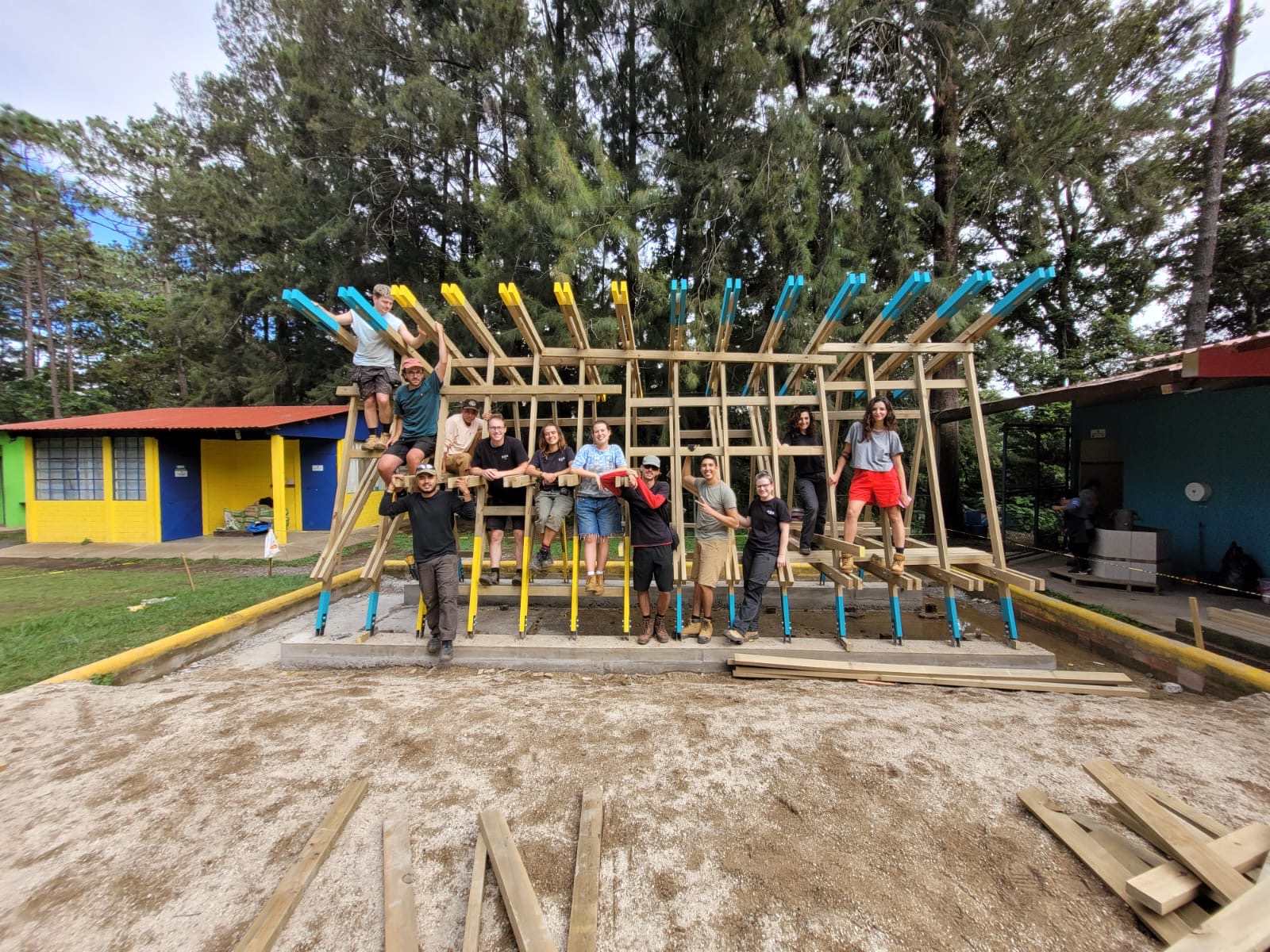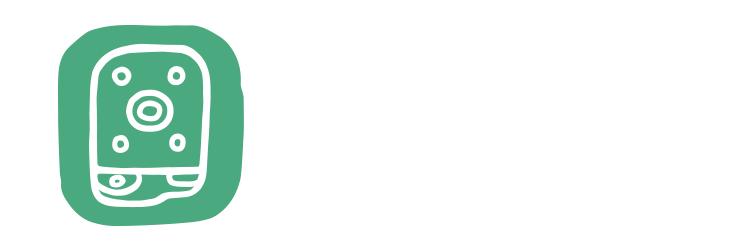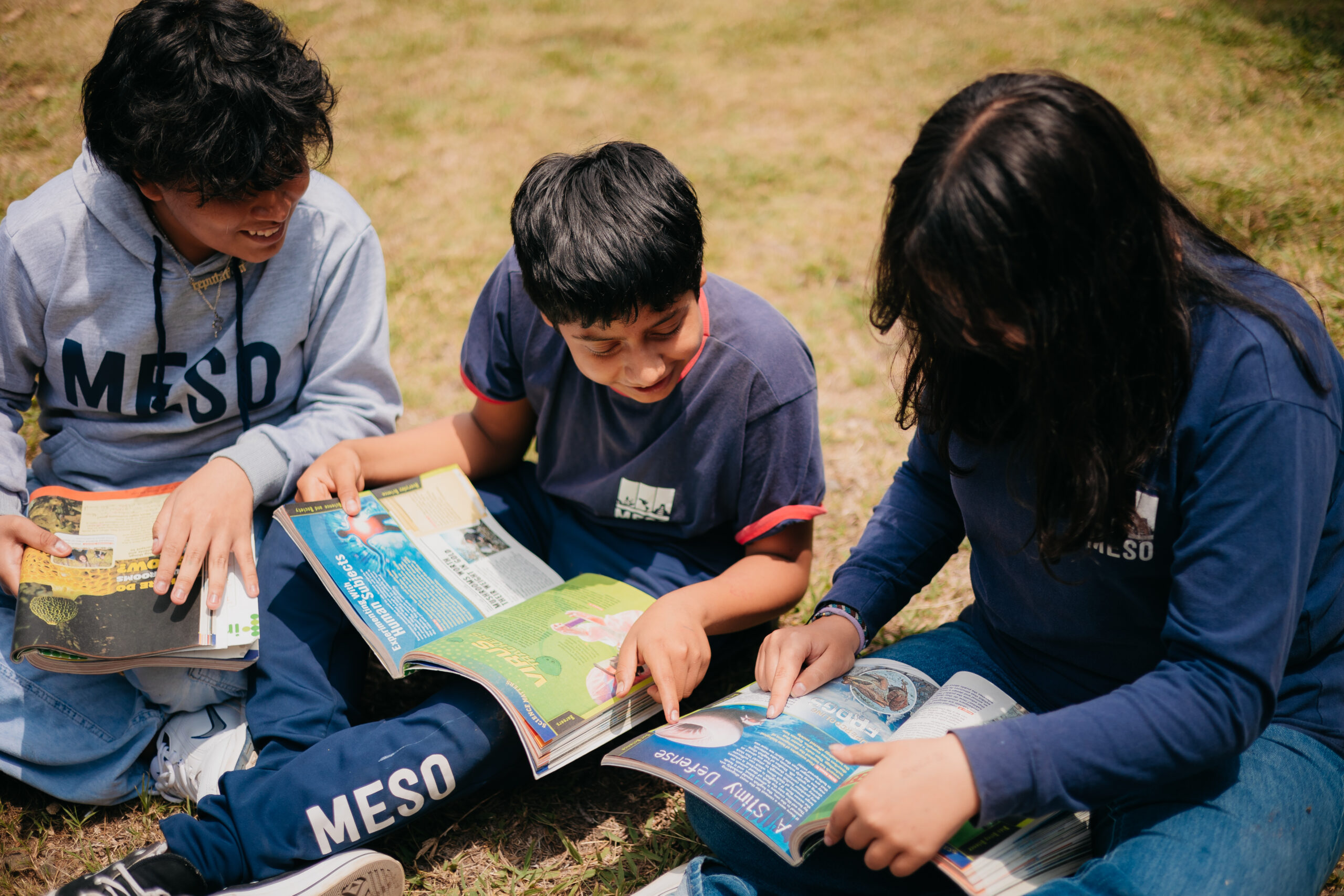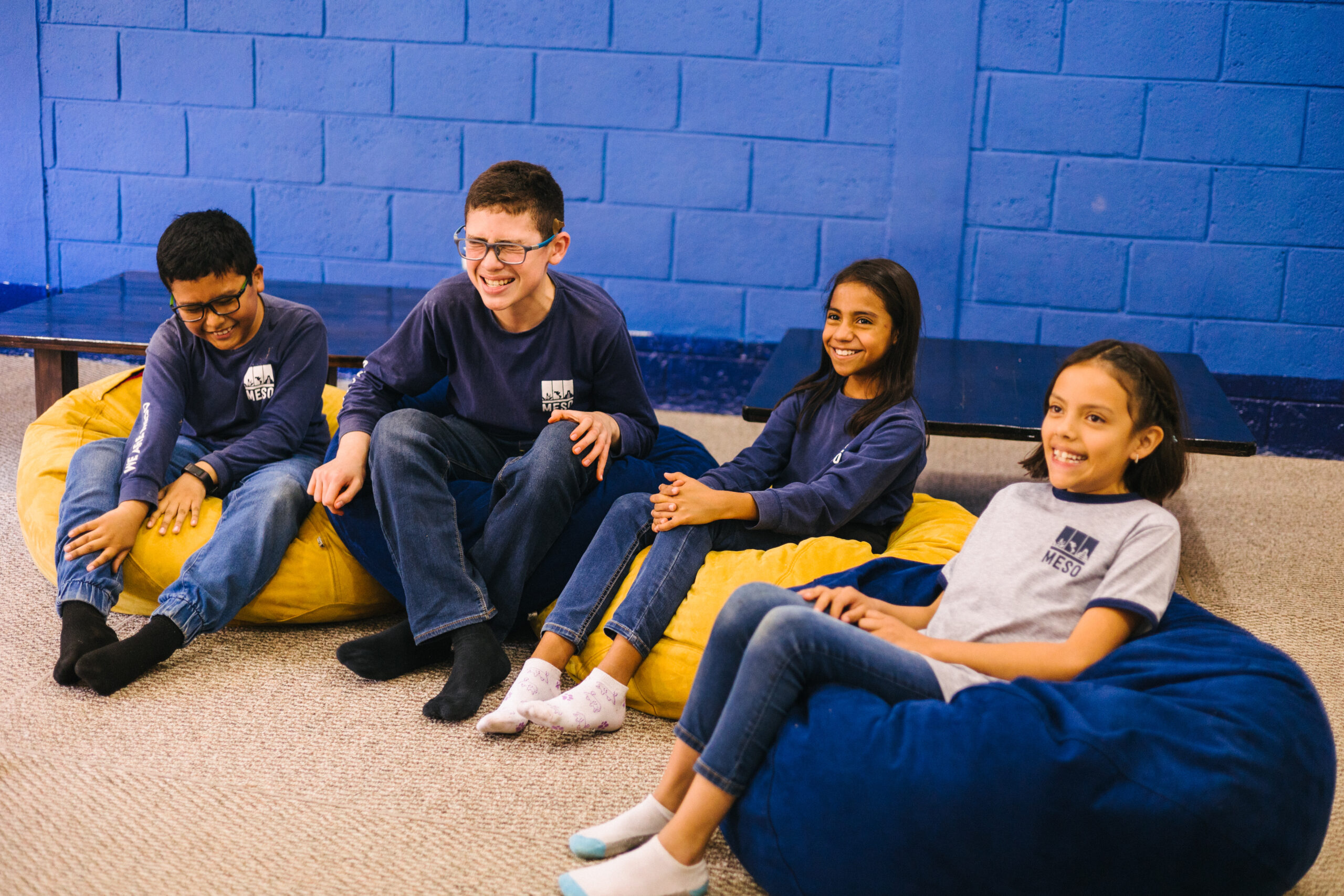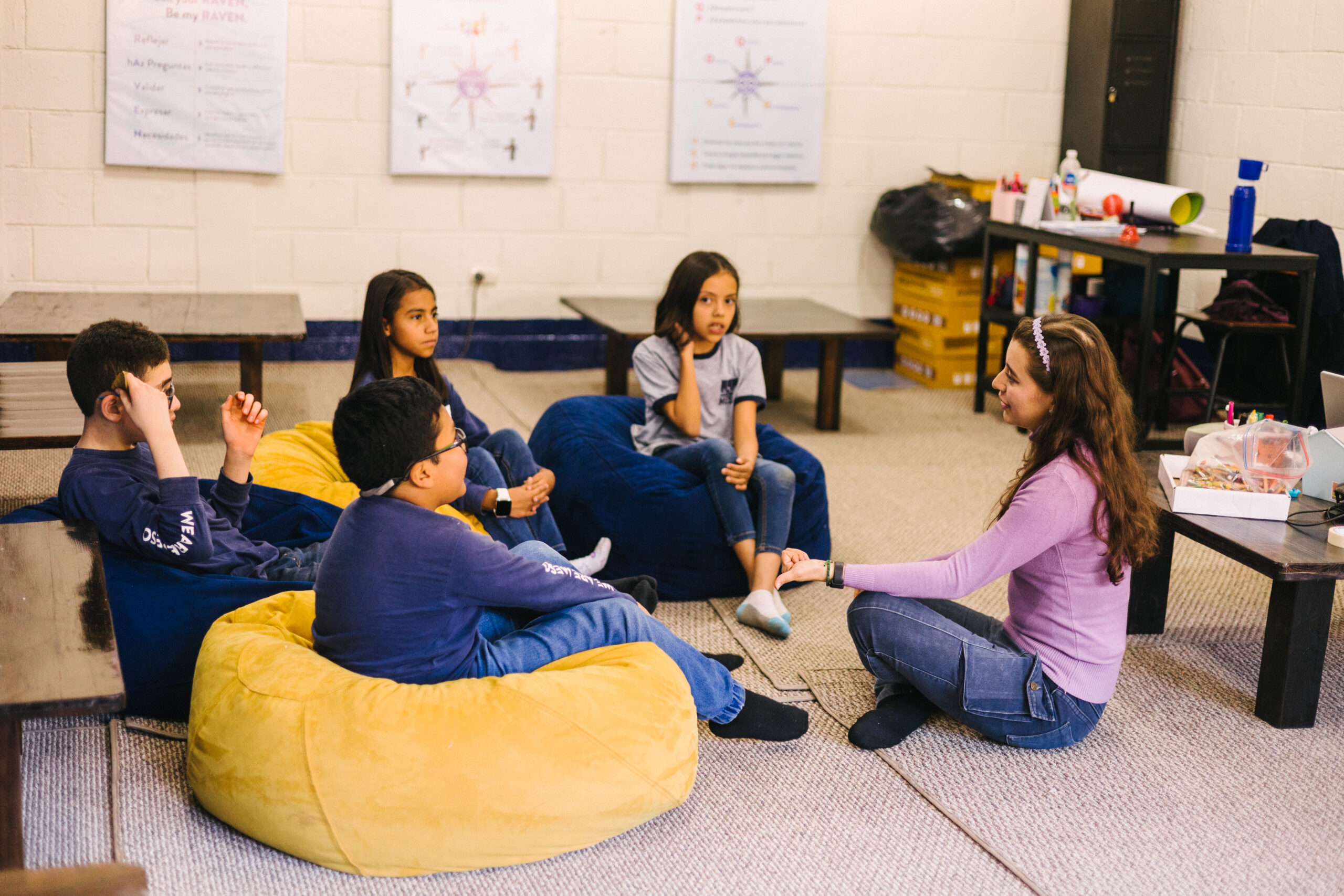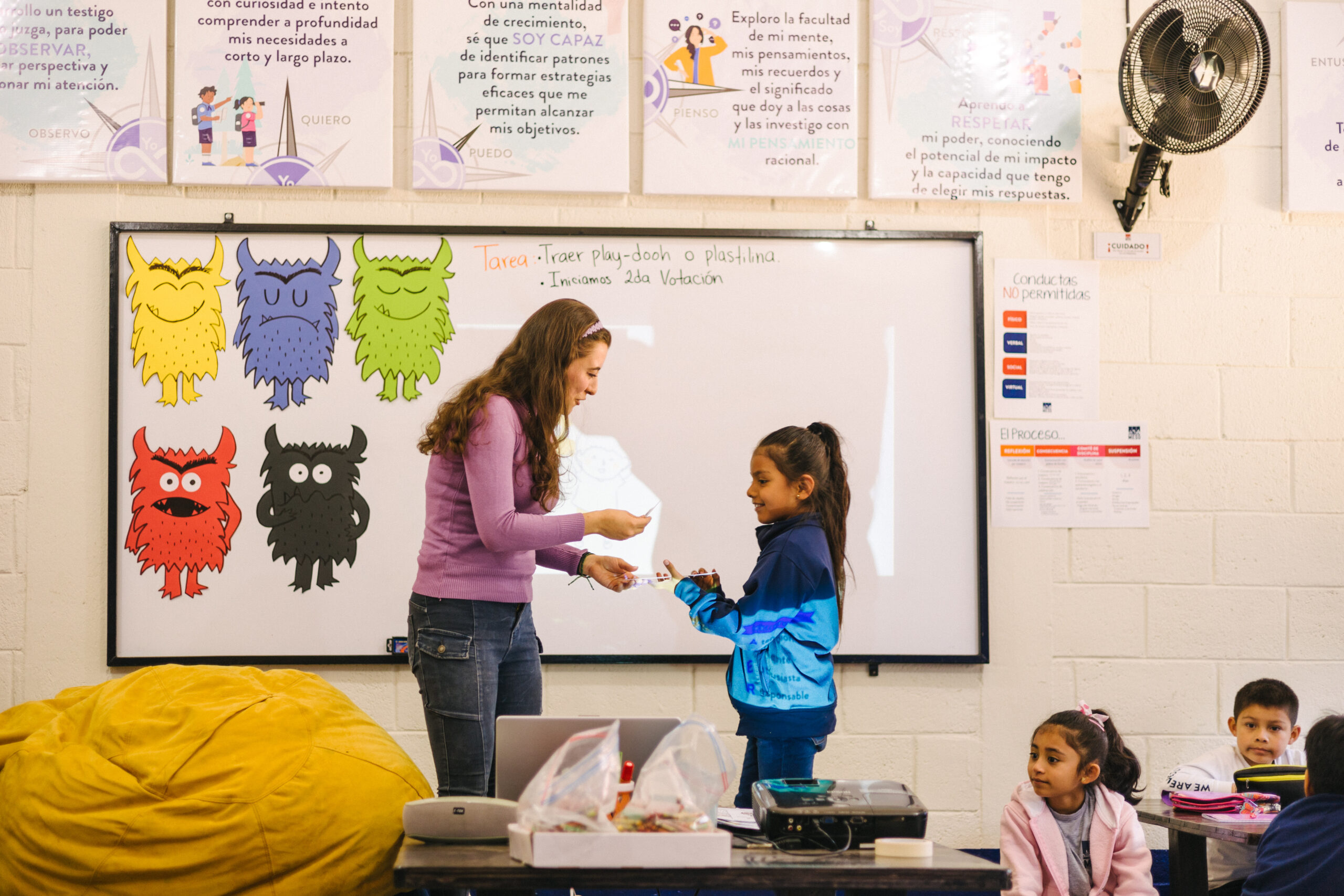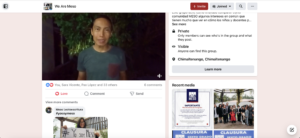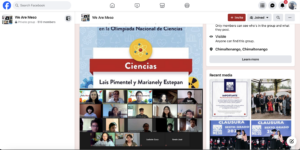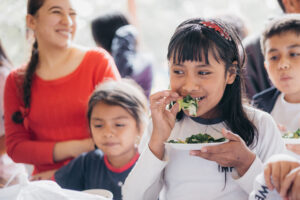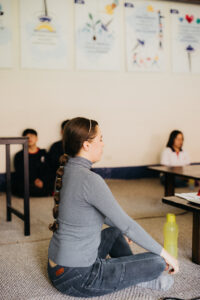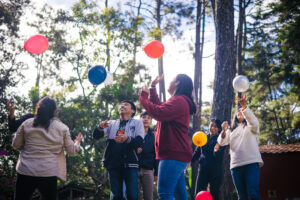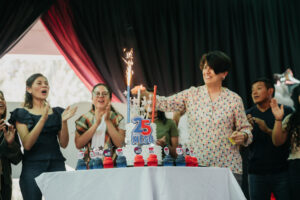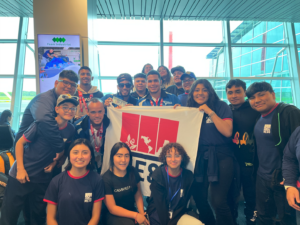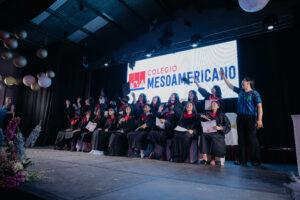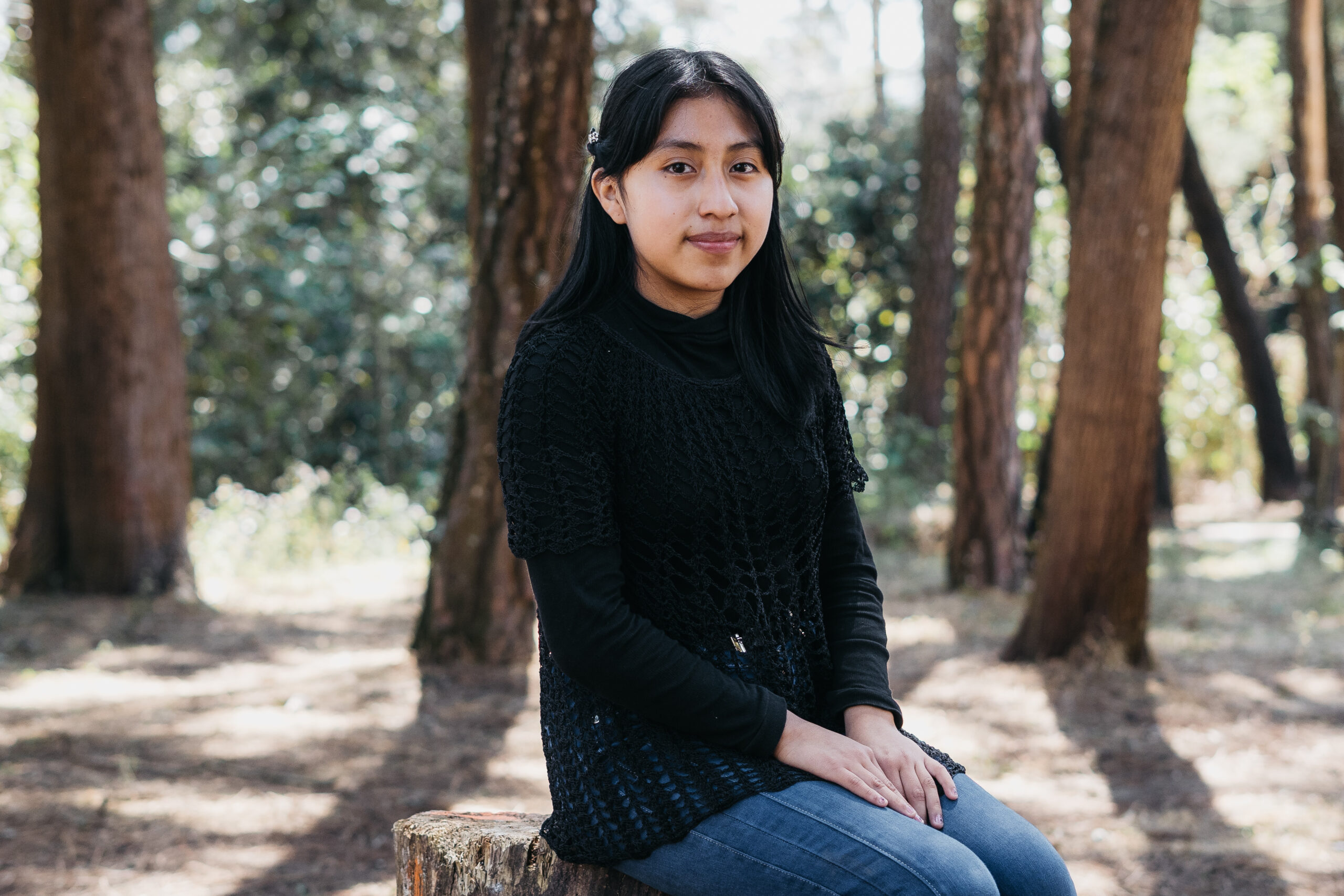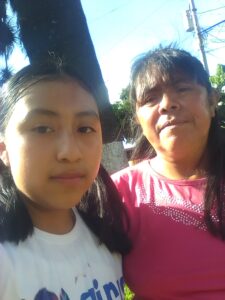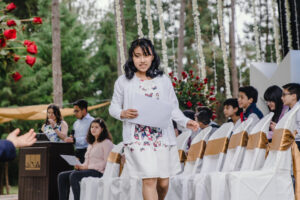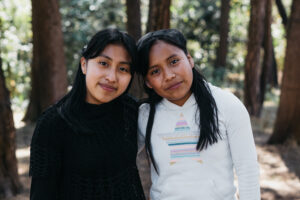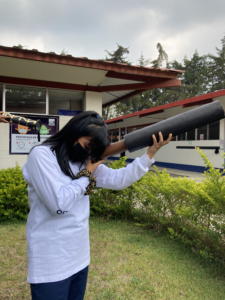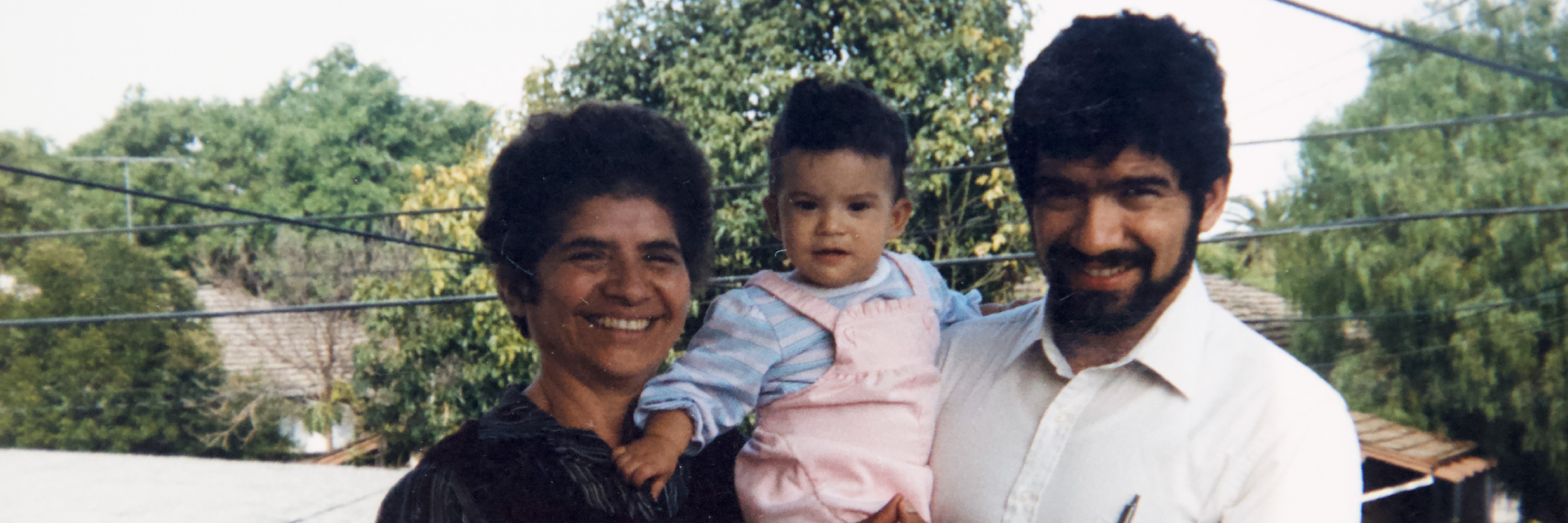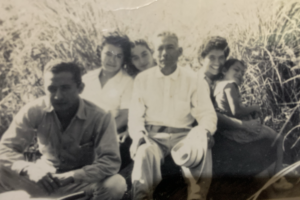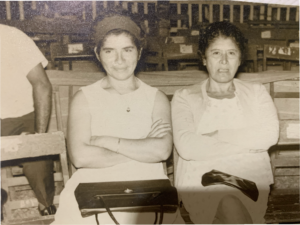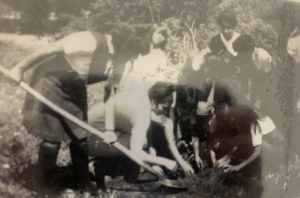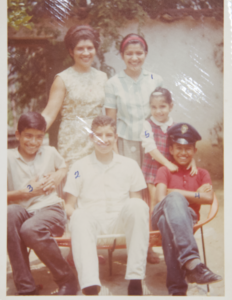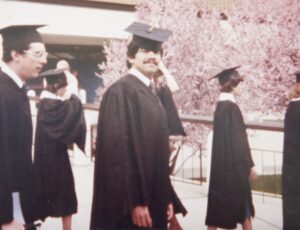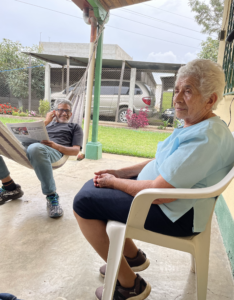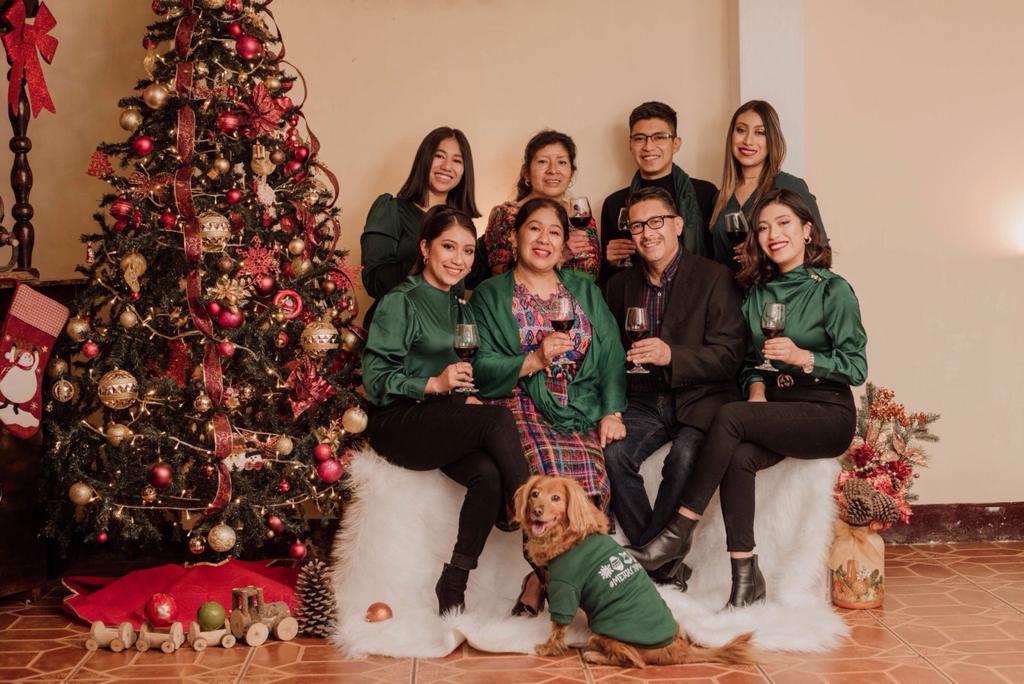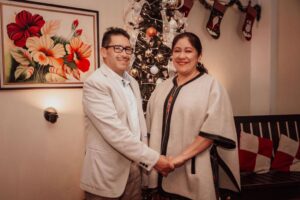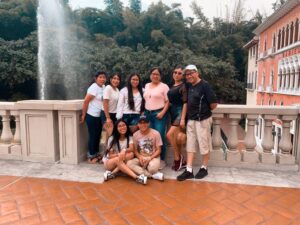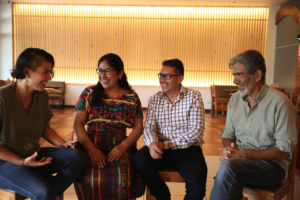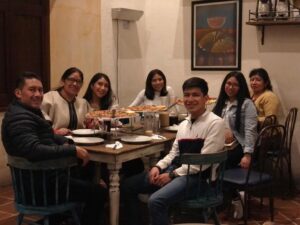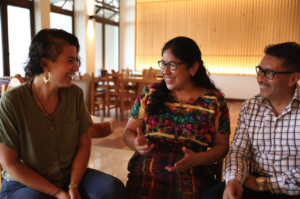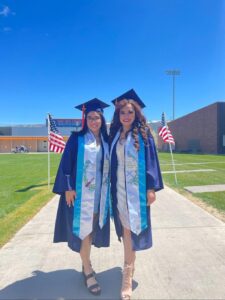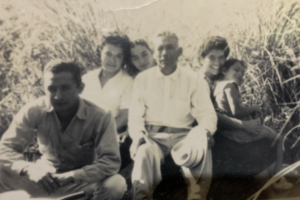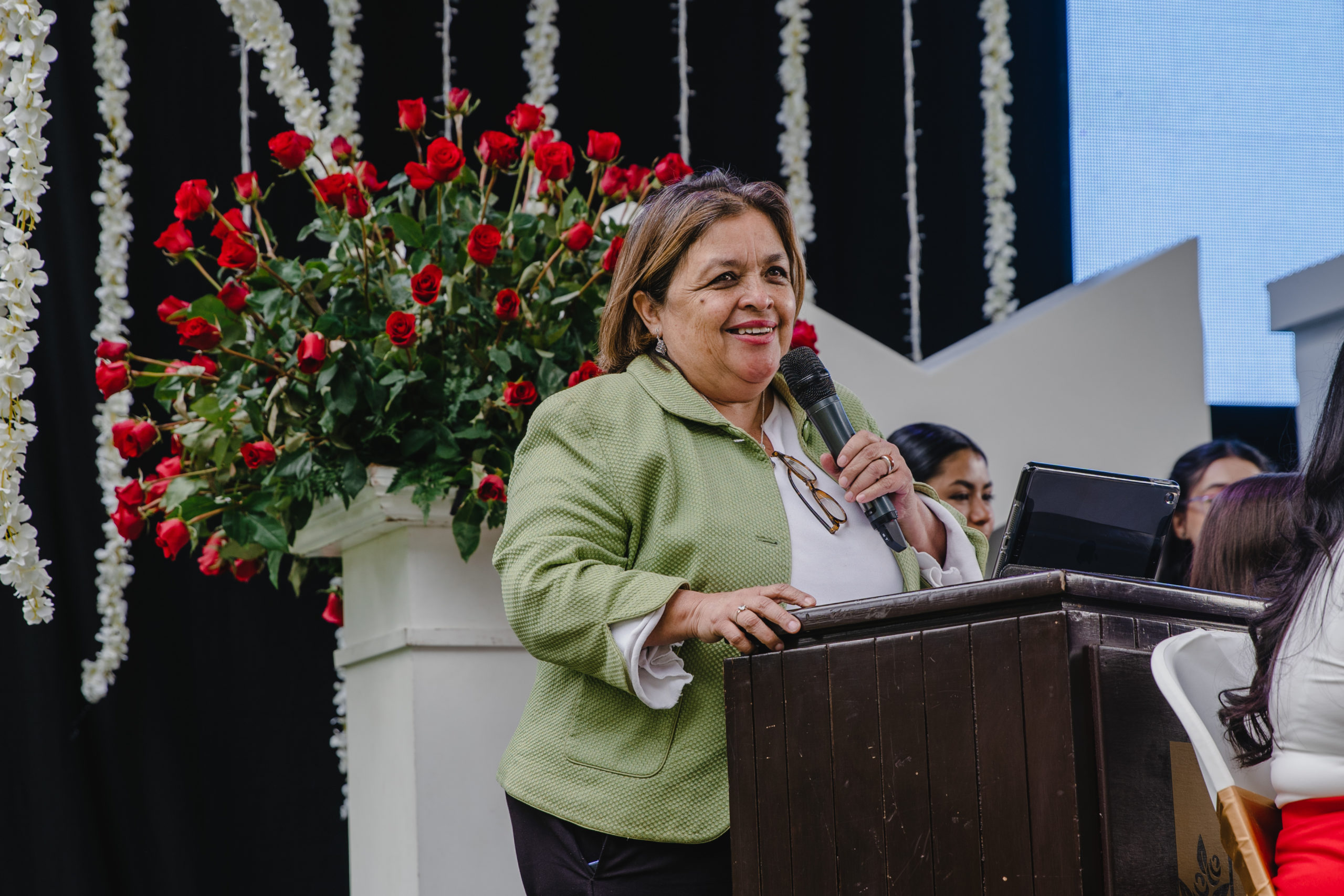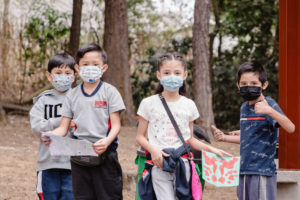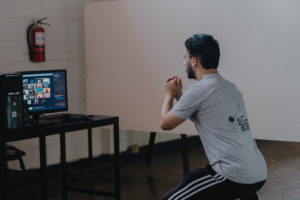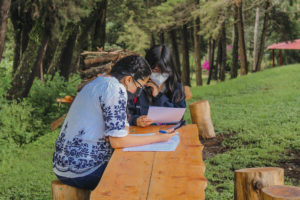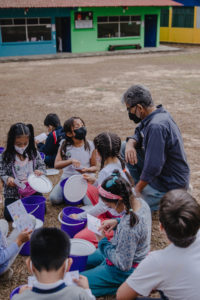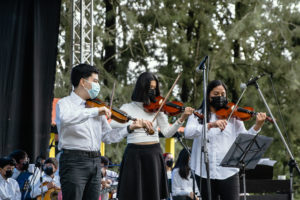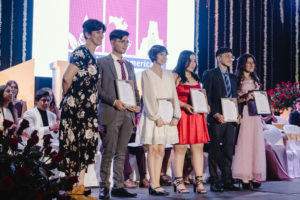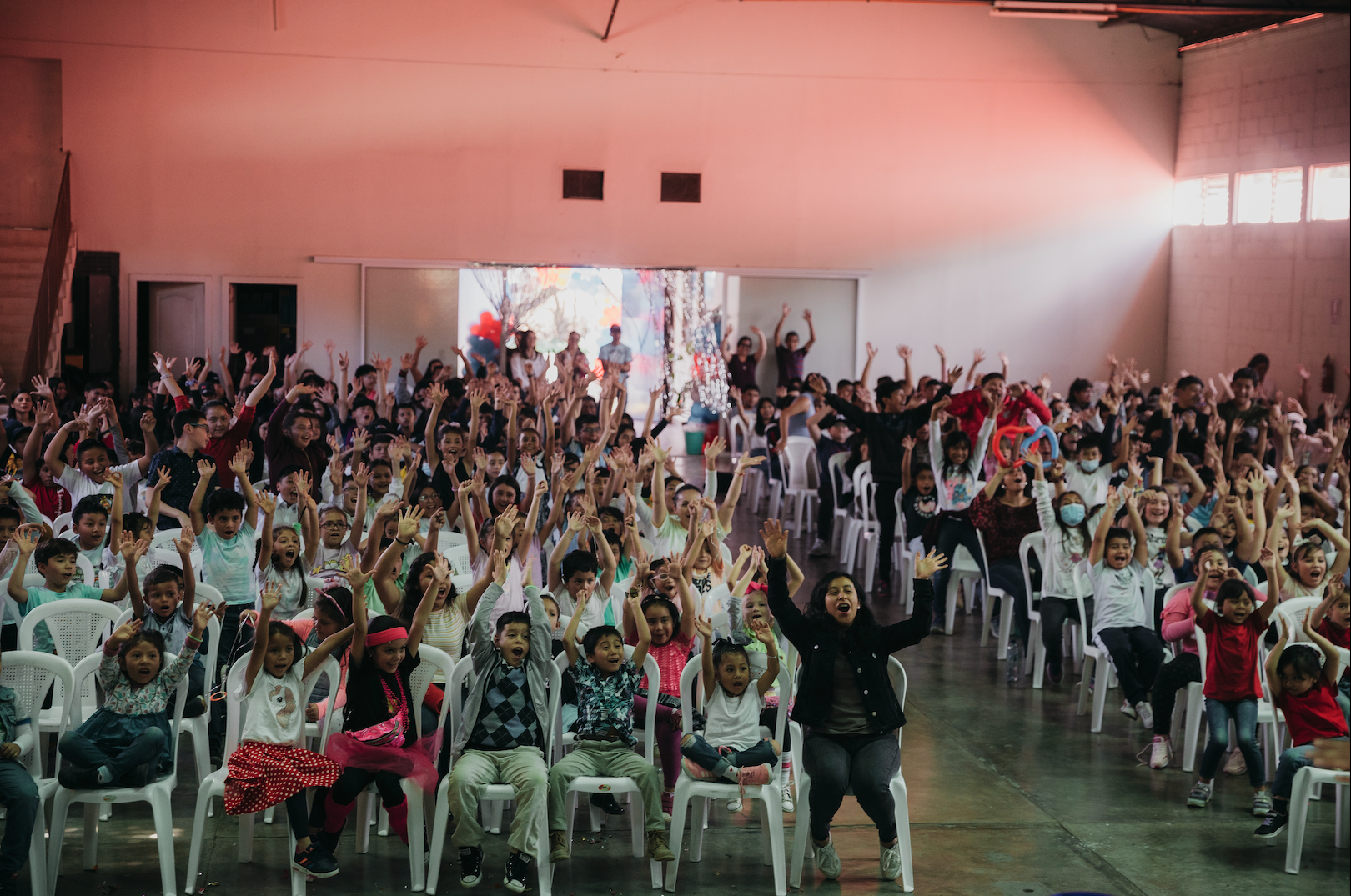
Fueron casi tres años de estar en línea. El Covid-19 fue una amenaza implacable que no distinguió género, edad ni raza, pero aún así, se enfrentó de maneras muy distintas, en diferentes lugares… El 13 de marzo de 2020 se registró el primer caso de Covid-19 en Guatemala. El país cerró sus fronteras muy eficazmente y de un momento a otro, hubo un encierro total.
Desde que fue declarada emergencia a causa del Covid-19, la Organización Mundial para la Salud apoyó al Ministerio de Salud Pública y Asistencia Social en Guatemala, participando en capacitaciones a funcionarios de servicios de salud sobre medidas de prevención, toma de muestras, protocolos de atención, diagnósticos y pruebas, manejo de emergencia, insumos, etc.
Se instauró un riguroso toque de queda y casi todas las familias adoptaron medidas higiénicas extremas, nunca antes vistas y para las que estábamos muy poco preparados. Aún así, hicimos todo lo que estuvo en nuestras manos para continuar con nuestra vida, sin arriesgar nuestra salud ni la de nuestros seres queridos.
Impacto del Covid-19 en la niñez y la juventud
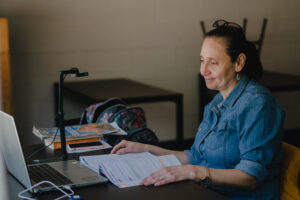
Estar en casa generó emociones encontradas, pero sobre todo en los más pequeños de la familia. En contraste con los espaciosos parques infantiles que se pueden encontrar en EE.UU., desafortunadamente, Guatemala cuenta con espacios muy limitados, especialmente en las ciudades. Existen muy pocos parques públicos recreativos y, los que existen, en algunos casos, han sido invadidos por las pandillas o por personas adictas, quienes ponen en riesgo la convivencia de los niños.
Por ende, lo único que quedaba era el confinamiento y la convivencia forzada con la familia. Para algunos, fue beneficioso pasar tiempo con sus hijos, pero esto no fue así, para aquellos que enfrentaban retos de violencia intrafamiliar, hacinamiento, escasez de recursos y otras circunstancias difíciles de mencionar.
En el Meso conviven estudiantes de diversos orígenes económicos. Así como hay estudiantes que cuentan con amplios patios en sus casas, la mayoría no goza de estos espacios. En especial nuestros estudiantes becados, quienes muchas veces viven en hogares muy pequeños, que deben compartir con sus hermanos, padres y a veces, con otros miembros de su familia como tíos, primos, abuelos y a veces incluso mascotas.
Adaptarse a las clases virtuales fue un gran reto para todos, pero especialmente para ellos, que además de superar el reto del espacio, también tuvieron que buscar acceso a dispositivos digitales que sobrepasaba el presupuesto de sus padres. Por último, pero no menos importante, acceder a una red de Internet estable fue lo más difícil. Algunas empresas que proveían este servicio, no tenían cobertura en algunas aldeas y caseríos, por lo que muchos se atrasaron en el desarrollo de sus estudios, en lo que lograban contratar una empresa que llevara el Internet de manera eficiente, hasta sus casas…
A pesar de estos retos, tanto padres de familia como estudiantes, se unieron al rato y encontraron soluciones a todos los problemas. Desde chicos cuyos padres sacaron alguna tablet o laptop por medio de “Visacuotas”, hasta chicos que estudiaban todos los días por medio de un teléfono celular (cada uno en diferente grado).
Fue allí donde para el Meso, se volvió evidente que se necesitaba también darle solución a todos los problemas de conectividad, no solo virtual, sino también emocional, y fue así como nació nuestro programa de inteligencia emocional “Indigo”.
Meso unió sus fuerzas
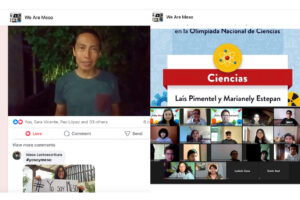
A pesar de las evidentes dificultades, toda la comunidad Meso se puso manos a la obra. El personal administrativo, los docentes, los padres de familia y los estudiantes aceptaron el reto y tres días después del cierre, todos se habían subido al tren del “Homeschool”.
Las clases virtuales empezaron y lograron funcionar gracias a la creación de grupos en Facebook y la determinación de toda la comunidad educativa. Docentes y estudiantes compartieron retos científicos, artísticos, y de otras índoles para no perder el contacto entre ellos.
Nuestro regreso del Covid-19
Como todo en la vida, nada es para siempre y nuestros estudiantes regresaron 100% a clases presenciales en enero del 2023. La emoción se sentía en el aire, los reencuentros fueron muy emocionantes y llenos de abrazos y cariños. Los chicos se sentían muy emocionados de volver a compartir momentos inolvidables con sus amigos. El regreso también supuso un shock, ahora para volver a acostumbrarse a la rutina y el ambiente. Pero como siempre, la comunidad Meso aceptó el reto con gracia y siempre dispuestos a encontrar soluciones efectivas.
Al vernos todos los días, logramos identificar la necesidad de nuestros estudiantes de adoptar un estilo de vida más saludable y resiliente, para lo cual, desarrollamos varios programas y adaptamos nuevas medidas en nuestro colegio, tales como:
- Desarrollamos un programa disciplinario para que los estudiantes comprendan y respeten los límites.
- Renovamos la cafetería escolar e instauramos Meso Eats, con comida saludable que busca mejorar su calidad de vida y contribuir con su proceso cognitivo.
- Gracias a Meso Eats, eliminamos del menú comidas chatarra, sodas, “chucherías” y todo alimento procesado que no contribuye de manera positiva a sus cuerpos.
- Aunque Indigo fue desarrollado durante la pandemia, hasta este 2023 abrimos una clase donde los estudiantes tienen un período a la semana en el cual adquieren herramientas para desarrollar una mentalidad de crecimiento, tomar conciencia de sí mismos y autodirigirse y regular sus emociones.
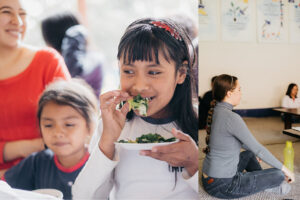
También identificamos la necesidad de nuestros estudiantes de socializar y crear nuevas conexiones entre ellos, por lo cual también organizamos:
- Copa Meso y Torneo de Baloncesto, en los que estudiantes de distintos cursos jugaron al fútbol y al baloncesto.
- Trabajamos en nuestro Huerto, donde los estudiantes aprendieron a cultivar vegetales y descubrieron la importancia de la conservación del suelo, entendiendo también el por qué el Meso también forma parte del movimiento Salvemos el Suelo (Save Soil).
- Nuestros chicos, con mucha emoción y talento, participaron en nuestros concursos “Meso’s Got Talent” y “Spelling Bee”.
- Por primera vez, 20 de nuestros estudiantes, entre las edades de 14 y 17 años, viajaron a EE.UU. para representar a Guatemala en el UNESCO Center For Peace Summer Camp (Campamento de verano del Centro UNESCO para la Paz). Allá, los chicos compartieron con estudiantes de otras culturas, aprendieron nuevas habilidades y tuvieron una experiencia que les cambió su perspectiva de la vida.
- Inauguramos nuestra clase Montessori para estudiantes de Prekinder y Kinder, para facilitar el desarrollo de nuevas habilidades en el marco de este modelo educacional.
- ¡Celebramos 25 años de educación! Nos reunimos y celebramos a nuestro querido Meso y cómo ha evolucionado durante todos estos años.
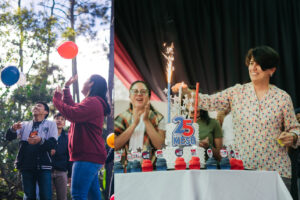
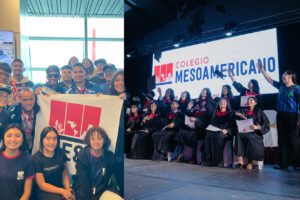
¡Hemos logrado tanto, pero aún queda mucho por hacer! Pero por ahora, estamos agradecidos por todo lo que hemos logrado, del tiempo que permanecimos encerrados y todas las lecciones que esto nos dejó pues, sin este dolor, no hubiéramos tenido la oportunidad de crecer, tanto los chicos como estudiantes, como los maestros y el personal administrativo. Todavía queremos crecer y seguramente se nos presentarán más retos y oportunidades este 2024.
